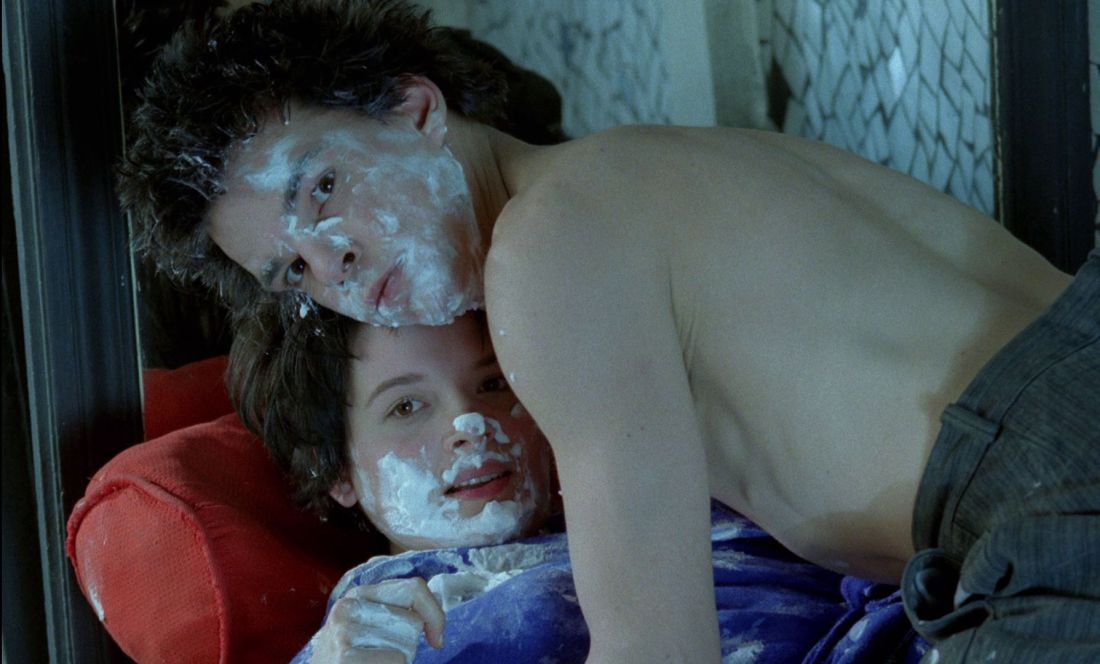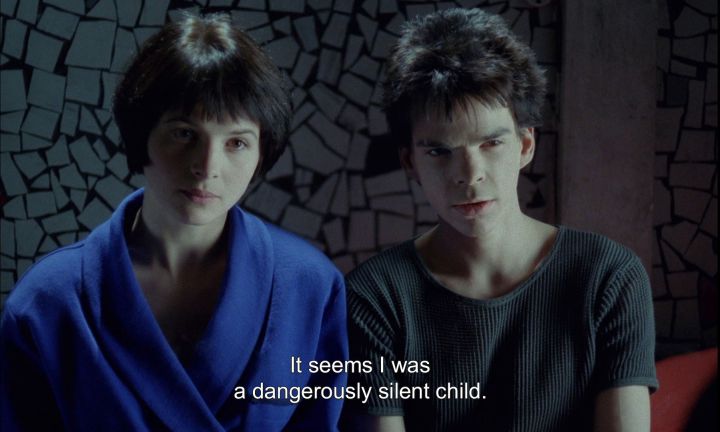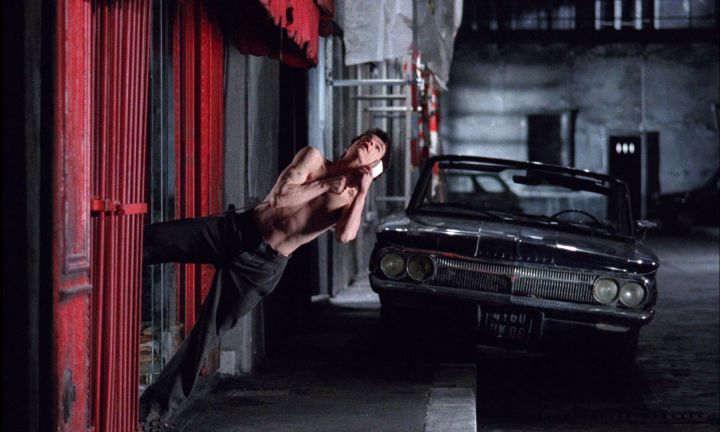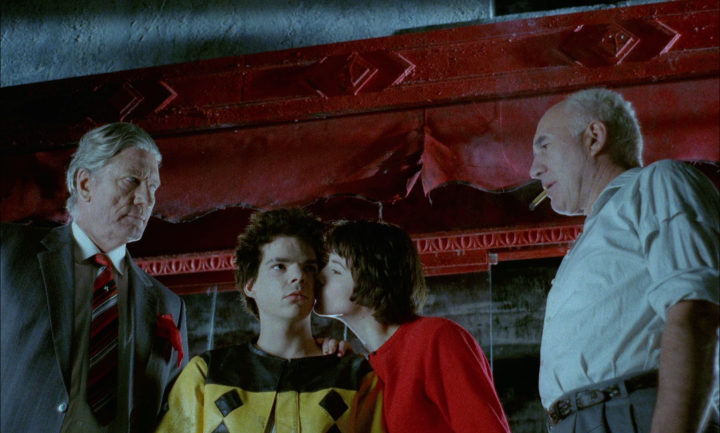There really is no one like Leos Carax — a filmmaker I only became aware of through his “Merde” segment in the portmanteau film Tokyo! (2008). My interest took an upswing with the release of Holy Motors (2012) and that led me to explore his other works — not that there are that many. His features consist of Boy Meets Girl (1984), Mauvais Sang (1986), The Lovers on the Bridge (1991), Pola X (1999), and the previously mentioned films. It must be admitted that he is not prolific — a situation that seems be more financial than anything. The expense of The Lovers on the Bridge — and its attendant underwhelming box office — accounts for the eight year gap till Pola X. When that tanked…well, you get the idea. His films are too strange and obsessive for mainstream audiences — though the first two suggested a better reception — and critics seem largely (at least in the US) unfamiliar with him, though that changed with Holy Motors. There’s an irony there since Holy Motors is easily his most impenetrable film.
Mauvais Sang — as obsessive as anything he’s made — is probably his most viewer-friendly work. Its plot at least seems to be relatively normal, though that strikes me as deceptive. The film brims with Carax’s touchstones (all it lacks is the Samaritaine Department Store). The relationships are nothing if not strange. The plot is best not scrutinized too closely, though the film is often so vague that it may not matter. There are aspects of the film — touching on AIDS and an early take on something like climate change (blamed on Halley’s comet) — that verge on science fiction. The romantic entanglements are convoluted and unusual. And Denis Lavant (Carax’s favorite) is nobody’s idea of a leading man, despite his undeniable charisma. But the film — much like some New Wave films of the 1960s — trades in gangsters and gunplay. Better still –from a broad audience standpoint — the story is built around a heist. Audiences can seize on this, put up with the rest, and fill in any of the sketchy plot with their knowledge of the genre. In a sense, Mauvais Sang is a poetic, tragic love story (actually three love stories) disguised as a B movie.
I don’t use the word “poetic” lightly here. I think that’s the best description of the feel of the film. The loose structure is obviously less concerned with story than it is with these doomed loves and the enhanced emotions of the characters (who sometime behave like characters out of particularly melodramatic opera). His soundtrack choices enhance this. The most famous of the scenes that use music is easily the one where Lavant dances to David Bowie’s “Modern Love” — something increased by Noah Baumbach and Greta Gerwig riffing on the scene in Frances Ha (2013). It’s entire concern is to present a kind of poetic motion. There’s a more balletic use of Charles Chaplin’s Limelight (1952) score, as well. But much the soundtrack works on the heightened emotional kick of Prokofiev’s Romeo and Juliette, Benjamin Britten’s Simple Symphony, and the same composer’s “Variations on a Theme of Frank Bridge.” It is an extraordinary range of just-right choices.







On the off chance that it hasn’t already been brought to your attention (and the slimmer yet chance that you’ll care two figs) there’s a… *ahem*… documentary out there on Netflix . Now here me out– Mr. X purports to explain to some degree just why Leos Carax remains as obscure as he is within the industry and in the public eye. I started it one night, long past my bedtime, and so haven’t yet made it thru and can’t speak to its merits or lack thereof.
I think it’s on the Mauvais Sang Blu-ray, too, but I haven’t watched it yet.
How was this received? I haven’t seen it but mean to track it down.
I would say…not badly. The audience was very small because of all the alarmist weather reports of the so-called ice storm (“Don’t go out if you don’t have to,” Channel 13 kept advising) that was coming and didn’t. No one walked out. No one told me it was “the worst thing” they’d ever seen — unlike The Lovers on the Bridge. One woman did>/i> say, “We should all be congratulated for sitting through that,” but her husband called out, “Thanks! Great choice.” To this she grudingly said, “He liked it.” I, of course, love it.
Happy to hear the audience refrained from such hyperbole and left the exaggerated language to the news anchors.
One can never tell. I suppose it is futile to say you shoulda been there…
Sadly it’s equally futile as saying I should be at Night Watch tonight. Damn evening job. At least I’ve seen tonight’s feature, albeit not on the big screen where I can only imagine the benefits. Hope lots turn out for a stylish vampire fix.
Well, you can’t always be at work every evening, or can you? It was surprisingly well attended — nearly 70 showed up. I believe that’s more than were at the Friday night opening at the Fine Arts in 2006. One couple walked out in the first 15 minutes. I think it was the heavy metal on the soundtrack. Others believe they thought they had come to see a movie about Rembrandt, but that would mean they didn’t listen to a word I’d said introducing it (possible) and completely ignored the introductory narration (also possible, but stretching it). Everybody else seemed to like it. There was applause — not thunderous like we got with Shanghai Express or Love Me Tonight, but solid — and several went out of their way to tell me they were coming back next week.